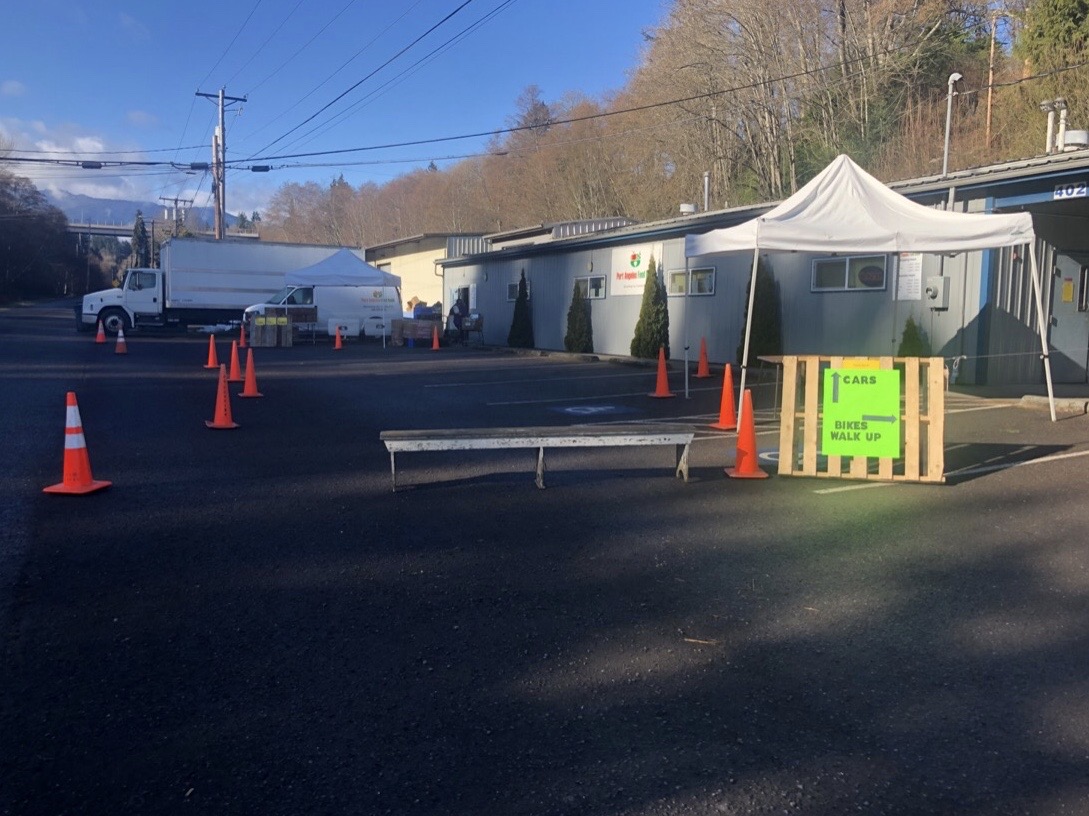
By Emily Matthiessen
At the Buccaneer we are interested in how Peninsula College faculty are responding to the changes COVID-19 has necessitated. Recently, Professor Andrea Motyka participated in an interview on the subject of mathematics. She earned a B.S. and a Ph.D in mathematics from the State University of New York at Buffalo and is known for being an innovative educator . She has been teaching at Peninsula College since 2004 and is also working with Olympic Service District #114 to “develop best teaching practices that improve student learning.”
Q: How has the math department adapted to being completely online? What is working well? What are some of the more difficult aspects?
A: I can only speak for myself, not the whole department. I think each of us would have very different answers to this question. Given that, each of us had been using technology of some sort or another in our classes so we’re not a technology-averse group of people. Most, if not all, of the math classes have been using online homework and assessment generator tools for years. We all had some level of experience making videos, from novice to a step or two beyond novice.What makes this current quarter different is teaching remotely. This is a whole different animal from anything faculty have been asked to do in the past. It’s not online and it’s not face-to-face. It’s in between and–for me–is incredibly difficult and energy-sapping. The digital connection to students is valuable but it does not compare to being in the classroom. When I’m in the classroom I can feel the energy, I know when there is confusion. I know when there is an a-ha! moment happening. I know who understands something, who is teetering on the brink of a breakthrough, who needs to be left alone for a moment of think time, and who needs a more focused conversation. While I can see all the faces of all the students, I have lost my math prof “spidey-sense.” I feel removed from the students even though they’re right there on the screen.
Q: How are the students doing? Are there enough math tutors online and are the students finding them?
A: From my perspective, I see an entire spectrum of student reactions to remote learning. I did have one student leave on day one because the digital environment was too jarring and chaotic from the get go. Other students have been moved to tears because of the barrier of the very technology that has connected us. It is impossible to just point at something and say “this is where I’m stuck” and the need to click to do anything gets tiresome. Most students have varying experiences day to day due to the vagaries of bandwidth and connection speed. At the other end, some students have grabbed the technology and run with it. They’re sharing their screen easily. They’re able to run multiple screens and have the class on one screen and their math assignment on another and–for all I know–Netflix or Facebook or tik tok running in another window. They’ll click in, ask their question, click out, and carry on. These latter are not the students I am worried about.The Math Lab has done a great job making themselves available. I know that at least a small handful my students have visited once or twice. I remind my students the service is available through Canvas but it’s not the same thing as taking the class on a field trip and walking over to the space in the building to see it in person.
Q: What are some of your favorite math books? Do you like Norton Juster’s books?
A: What a great question! I love the short story “Luminous” by Greg Egan. It involves an alternate number system that could destroy our reality if it gains domination over our current number system. Industrial Algebra is the evil entity the protagonists want to keep knowledge of this alternate number system away from so they can’t use it for anything nefarious. The idea of a mathematical industrial complex is just an awesome premise. One of the best communicators about math and mathematical concepts today is Steven Strogatz. I like everything by him I’ve ever read and he’s writing to everybody. If you want to know why some folks love math, read something by him and you’ll understand why we do. David Berlinski’s book “A Tour of the Calculus” is one I pick up every couple of years. I laugh and learn something every time I read it.I have not heard of Norton Juster.
Q: How would you define mathematics?
Mathematics is how we describe the world around us when words just aren’t enough. It’s a user’s manual for every task you have to do to get through the day. You have to measure the coffee, approximate the time needed to finish one more level in that game app before you leave the home, gauge the gap in traffic and if you’ll fit and at what speed do you need to hit it just right, weigh the books in your backpack, calculate the tip, estimate how many cords of wood are in that tree you just felled, etc. You can describe in lyrical prose or a bullet-point list how you felt when you did any single one of these tasks. But to get them done, you needed math.
Q: Do you have any suggestions for caretakers who are attempting to help their children at home with math? Workbooks often have the unfortunate side effect of causing children to lose interest in math; emotional entreaties to do homework can have the same effect. What can caretakers do to show children the beauty of math and how it can illuminate the world and universe? Are you aware of any math books, websites or games that would be enjoyable for families to experience together?
A: My first comment (always) to any parent with a less than positive perspective of math is to set that aside. Forget how you were taught it if there was any drill-and-kill involved. If your own experiences with math have given you a negative mindset about math, you have to make every effort to not pass that on to your kids. To jump right in and start doing some math disguised as play, check out Math Anywhere (mathanywhere.org). It has numerous activities and materials that focus on math without the drudgery of a worksheet. Jo Boaler is at the top of the math education crowd right now with respect to why it is important that we change how math is taught get rid of repetitive drill worksheets. Her website YouCubed (youcubed.org) is loaded with the literature supporting all the math activities available.If you just want to do play a game that is math-in-disguise, play SET. It’s all about finding patterns and that is a foundational part of mathematics. It is available online (https://smart-games.org/en/set/start) but it’s also available as a simple deck of cards.


